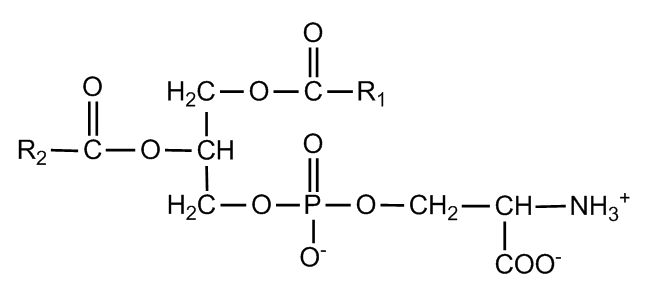
Phosphatidylserine, It’s Complicated
Phosphatidylserine (PS) is a phospholipid and is a component of the cell membrane. It plays a key role in cell cycle signaling, specifically in relation to apoptosis. Apoptosis is an evolutionarily conserved and tightly regulated cell death modality. It serves important roles in physiology by sculpting complex tissues during embryogenesis and by removing effete cells that have reached advanced age or whose genomes have been irreparably damaged.
PS is required for healthy nerve cell membranes and myelin. Aging of the human brain is associated with biochemical alterations and structural deterioration that impair neurotransmission. PS supports human cognitive functions, including the formation of short-term memory, the consolidation of long-term memory, the ability to create new memories, the ability to retrieve memories, the ability to learn and recall information, the ability to focus attention and concentrate, the ability to reason and solve problems, language skills, and the ability to communicate. It also supports locomotor functions, especially rapid reactions and reflexes.
Although long it has been speculated that PS may help in immunity, memory and cognitive functions, it is until recently that strong scientific evidences support the speculations. Over the past decades, the molecular and cell biological events associated with efferocytosis have been rigorously studied, and many eat-me signals and receptors have been identified. The externalization of phosphatidylserine (PS) is arguably the most emblematic eat-me signal that is in turn bound by a large number of serum proteins and opsonins that facilitate efferocytosis. We can safely draw conclusions that:
- PS externalization during apoptosis and cell stress are mediated by scramblases Xkr8 and TMEM16, respectively.
- Exposed PS is an evolutionarily conserved anti-inflammatory and immunosuppressive signal.
- An astonishing number of pathogens causing major infectious diseases utilize PS and apoptotic mimicry to evade host immune responses.
- PS-targeting therapeutics (e.g., AnxA5, bavituximab) can stimulate immune activity.
Open questions for scientists:
- Is PS dysregulation a universal mechanism of immune evasion for bacteria, viruses and protists?
- Should PS targeting be considered a global therapeutic option for infectious diseases?
- Should PS be considered a global checkpoint inhibitor for cancer?
Laybio is one of the largest soy-derived Phosphatidylserine manufacturers in China, and we also supply sunflower lecithin-derived PS as required by customers. Please contact our sales team for more information.
